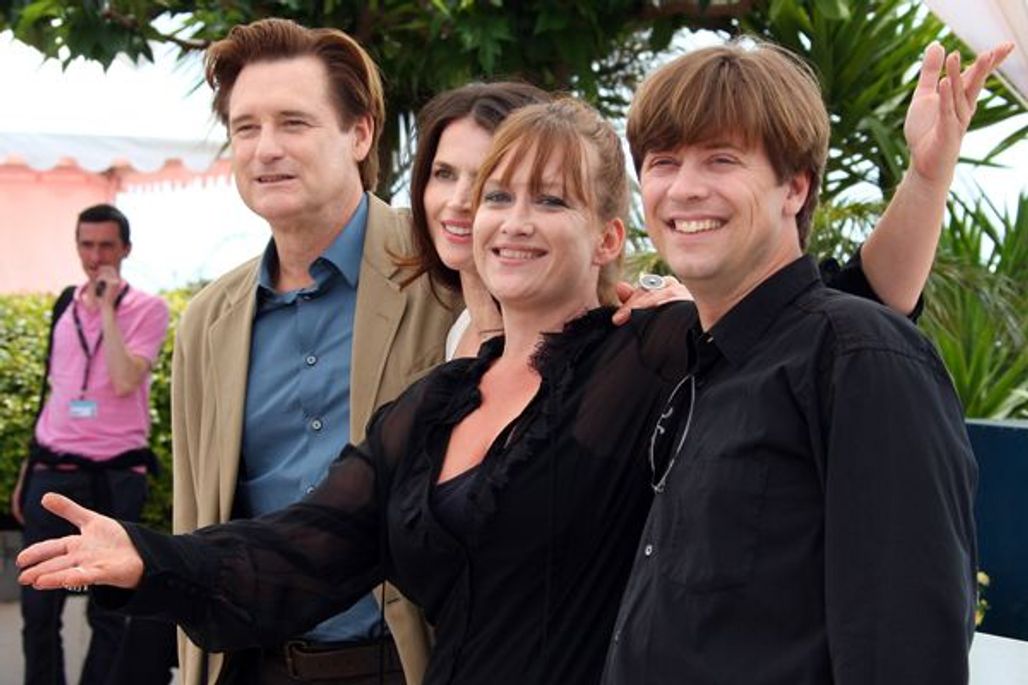
Press Conference: “Surveillance”

For the Surveillance press conference, director Jennifer Lynch, along with actors Julia Ormond and Bill Pullman and producer Marco Mehlitz, fielded questions from the journalists. Excerpts follow.
Jennifer Lynch on why it took so long to make a film since Boxing Helena:
“About 1994 and the onslaught of the trial and what I consider to be the misunderstandings and misrepresentations of Boxing Helena had fallen over me, I was wiped out. I was shooting some commercials and I was working on a novel and doing what I thought was falling in love. I did however in love conceive a child, who I decided to raise on my own.… I’ve been a little busy, eight years sober, 12-year-old kid and spinal fusion, and then I thought I’d get back to work.”
Jennifer Lynch on her “comeback”:
“I think that makes me sound more important than I may be. I’m a storyteller and I respect that and love that and it’s what I want to do with my life. It’s certainly what I did even when I was just telling stories to my daughter. “Comeback” is too big a word, but I’m thrilled to be here again; I feel very honored to have your ears into which to speak, and I hope it’s the beginning of many more.”
On the similarities and differences between working with David and Jennifer (Julia Ormond appeared in Inland Empire and Bill Pullman in Lost Highway):
Julia Ormond:
“When I see David’s work, I see someone who honors his creative center as an individual voice, and I think that is something that Jen has inherited, and probably the best compliment she could have is to have her own creative voice and notes to hit as a filmmaker and do it with great heart and great courage. For me they were both phenomenal to work with: The way that David worked on Inland Empire, I didn’t have a clue to what was going on and that was joyous and very releasing. And the way that Jen works is to endlessly put herself out there in a way that I have never experienced a director do so on a film in terms of making herself the nurturing center of everyone’s creative persona, and she takes that role deeply to heart. And especially after having been burnt by a professional experience, coming back in was such a reverence, such a joy and that ends up on the screen. This is really a great ensemble piece and that to me is the mark of a great director.”
Bill Pullman:
“Both Jennifer and David have asked me to play parts in which there’s a freedom from conventional morality that’s inside your deepest soul. The trains are very different, but both free you up from being precious and on the nose. In David’s world, it’s kind of less articulated, in Jennifer’s it’s articulated in this really rich, intelligent mind that is capable of being subjective and then objective in the next second. There is a facility that she has for enticing you intellectually as well as gut level. She presented this to us as a romantic comedy. I was glad because it meant that I got to kiss the girl…That idea of surveillance, the title of the film, there was a way that we watched each other inside each other, in the world we shared that was very sexy, potent; we were performing for each other’s camera.”
Jennifer Lynch on what inspired her in her father’s work and the fact that he was opposed to the ending of this film:
“It was about three or four years ago now that he read the first draft and he said, ‘You cannot end your film like that, that is so sick!’ And I said, ‘But that’s who they are, that’s what this is about.’ He did challenge me and I did take on the challenge to write a different ending. And we shot both endings. I think what is most important about the ending that is in the film is not only do I think that it is what belongs there, I think it’s what we’ve never seen but needed to see in a thriller like this. Without the awkwardness of humanity at the end, then it’s just a story we’ve heard before. I just believed 100% that this was where it should go. Gratefully my father said, your ending is the ending that should be there, and that was a great compliment… What I learned from him is to be true to yourself, to trust what it is you’re trying to say, you learn as you’re going along and to let it go once you’re done.”


